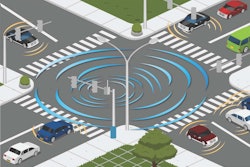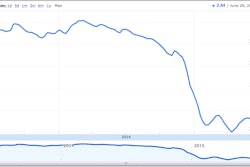The Federal Motor Carrier Safety Administration announced Tuesday it has denied several requests by carriers or drivers seeking exemptions to certain hours-of-service regulations.
One application, from carrier B.R. Kreider & Son, requested an exemption of the requirement that its drivers keep records of duty status. Drivers deemed short-haulers – those who are on duty less than 12 hours per day and who operate within a 100-mile radius of their base point — are not required to keep records of duty status. Kreider’s drivers, however, are required to, because they are on duty for more than 12 hours.
FMCSA added that enforcement of the 11-hour and 14-hour rules would be hampered if roadside officials didn’t have access to the RODS of drivers whose duty days exceed 12 hours.The agency also denied the exemption application of operator David Muresan, a driver who argued in his exemption application that current HOS rules require him to “drive when he’s sleepy.” Muresan says in his request he could operate more safely if he could decide when he needs sleep.Muresan “wants to determine when he is sufficiently rested to resume driving, but, as FMCSA has indicated in its HOS rulemakings, research indicates that individuals are not necessarily good judges of whether or not they are rested,” according to the agency’s denial.Three construction companies – Payne & Dolan, Inc., Zenith Tech, Inc., and Northeast Asphalt, Inc. – jointly applied for an exemption from the 30-minute break requirement of current hours-of-service rules.The companies’ drivers operate in support of nighttime road repair and maintenance operations, and they deliver equipment and materials to work zones, spending an average of two hours per day behind the wheel of their vehicle, according to the application.
The companies stated the deliveries are often time sensitive and that the mandatory 30-minute break constrains their ability to deliver when they need to. They added that the limited amount of time behind the wheel, along with their frequent breaks of less than 30 minutes, “make them less susceptible to fatigue than CMV drivers who spend most of their workday behind the wheel.”
FMCSA said little effort would be needed for the drivers to extend one of their frequent short breaks to 30 minutes, and because of this, the agency denied the exemption application.











